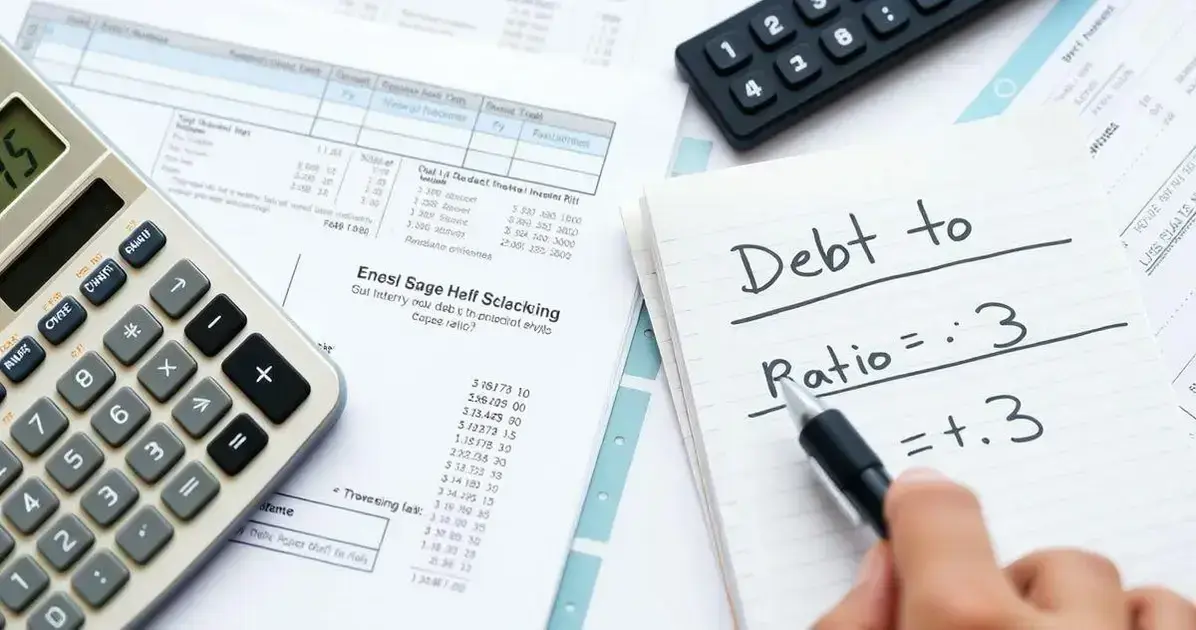ADVERTISEMENT
It appears there is still no subtitle provided. However, understanding how to qualify for a loan involves key steps that anyone can follow.
Knowing your credit score is the first step. This score helps lenders decide if you qualify for a loan and what interest rate they will offer you.
ADVERTISEMENT
Next, gather your financial documents such as pay stubs, bank statements, and proof of any debts.
Keeping these organized will make the application process smoother.
ADVERTISEMENT
Lenders usually require this information to verify your income and assess your financial situation.
Finally, familiarize yourself with the lender’s criteria and guidelines. Each lender may have different requirements for income, debt, and other factors.
By knowing what to expect, you can make a stronger application.
Qualifying for a loan is a crucial step in achieving your financial goals.
Whether you’re buying a home or funding a business, understanding how to qualify for a loan can make all the difference.
Understanding Loan Qualification
Understanding loan qualification is essential if you want to borrow money. Lenders look at different factors to decide if they will approve your loan.
These factors include your credit score, income, and employment history.
Your credit score is a number that shows lenders how reliable you are at paying back loans. A higher score means you have a better chance of getting approved.
It is important to check your credit score before applying for a loan to know where you stand.
Besides your credit score, lenders also want to see your income and job stability. They need to know that you can pay back the loan on time.
Having a steady job and a good income can greatly improve your chances of qualifying for a loan.
Common Requirements for Loan Approval
When applying for a loan, there are common requirements that most lenders look for. First, they check your credit score.
A good credit score shows that you have a history of paying bills on time. This makes you a more attractive candidate for a loan.
Secondly, lenders want to know about your income. They usually require proof, like pay stubs or tax returns.
Showing that you have a steady income helps them see that you can afford to repay the loan without struggling.
Lastly, lenders often ask for some kind of collateral. This means they want to know if you have assets that can back the loan.
Collateral could be anything of value, like a car or a house, which gives lenders extra security in case you cannot pay back the loan.
How to Check Your Credit Score

Checking your credit score is an important step when you want to apply for a loan. First, you can get your credit score from various websites.
Some websites offer free credit scores, so you don’t have to pay anything. It’s a good idea to check your score regularly to see where you stand.
Once you have your credit score, take a close look at it. A score above 700 is usually considered good.
If your score is lower, it might be helpful to improve it by paying off debts and paying bills on time. Understanding your score helps you prepare for loan applications.
Additionally, if you find any mistakes on your credit report, you should report them right away. Errors can hurt your score and make it harder to qualify for a loan.
Be sure to keep track of your credit score, as it plays a vital role in your financial health.
Tips for Improving Your Credit
Improving your credit is not as hard as it may seem. One of the first tips is to pay your bills on time. Late payments can hurt your credit score a lot.
Setting up reminders or automatic payments can help ensure you never miss a due date.
Another useful tip is to keep your credit card balances low. Try to use less than 30% of your available credit. This shows lenders that you can manage your credit responsibly.
If you can, pay off your balance in full each month to avoid interest and improve your score.
Finally, it’s wise to review your credit report for any mistakes. If you see errors, report them to the credit bureau right away.
Correcting mistakes can boost your score and help you qualify for a loan more easily.
Preparing Financial Documents
Preparing your financial documents is a crucial step when applying for a loan. Lenders want to see proof of your income and employment.
This means gathering documents like pay stubs, tax returns, and bank statements. Having these files ready shows that you are organized and serious about your application.
In addition to income proof, you may need to provide information about your debts and expenses.
This includes credit card bills, car loans, and any other financial obligations.
Lenders use this information to understand your financial situation and decide how much they can lend you.
Finally, don’t forget to include personal identification documents. This might be your ID, Social Security number, or any other relevant forms.
Having all these documents in order will help speed up the loan process and improve your chances of approval.
Understanding Debt-to-Income Ratio

The debt-to-income ratio is an important number when applying for a loan. It compares how much money you earn to how much money you owe.
Lenders use this ratio to see if you can handle more debt. A lower ratio is usually better, as it shows that you are not overextended with your current debts.
To calculate your debt-to-income ratio, add up all your monthly debt payments. This can include things like your rent, car payments, and credit card bills.
Then, divide that total by your gross monthly income, which is your income before taxes. This number will give you a percentage that reflects your financial health.
Most lenders prefer a debt-to-income ratio below 36%. This means that no more than 36% of your income goes toward debts.
If your ratio is too high, it may be time to consider paying down some existing debts before applying for a loan.
Submitting Your Loan Application
Submitting your loan application is the final step in the process. First, make sure all of your documents are in order.
You’ll want to double-check that you’ve included everything required, such as proof of income, credit history, and personal identification.
Missing documents can slow down the approval process.
Next, you can fill out the application form. Be sure to answer all the questions honestly and accurately. Lenders will use this information to assess your financial situation.
If you are unsure about any part of the application, don’t hesitate to ask for help from the lender.
Finally, once your application is submitted, be prepared to wait for a decision. The lender may need some time to review your documents and verify your information.
During this period, stay in contact with them. This shows you are serious about the application and willing to provide any needed information quickly.
Qualifying for a Loan
What is the first step to qualify for a loan?
Start by knowing your credit score.
What financial documents should I gather for my loan application?
Gather all necessary financial documents, including proof of income and debts.
Why is the debt-to-income ratio important?
Lenders want to see that you can handle the loan payments, and keeping this ratio low can increase your chances of getting approved.





